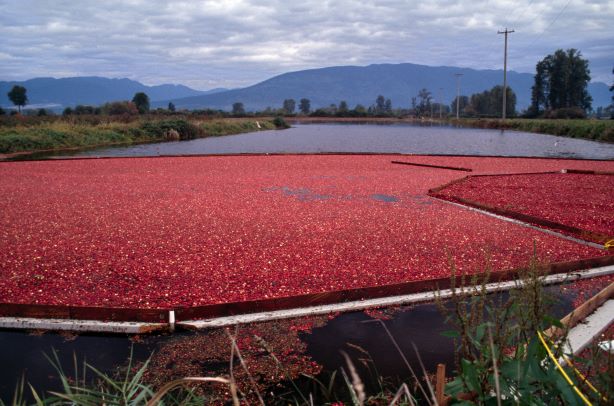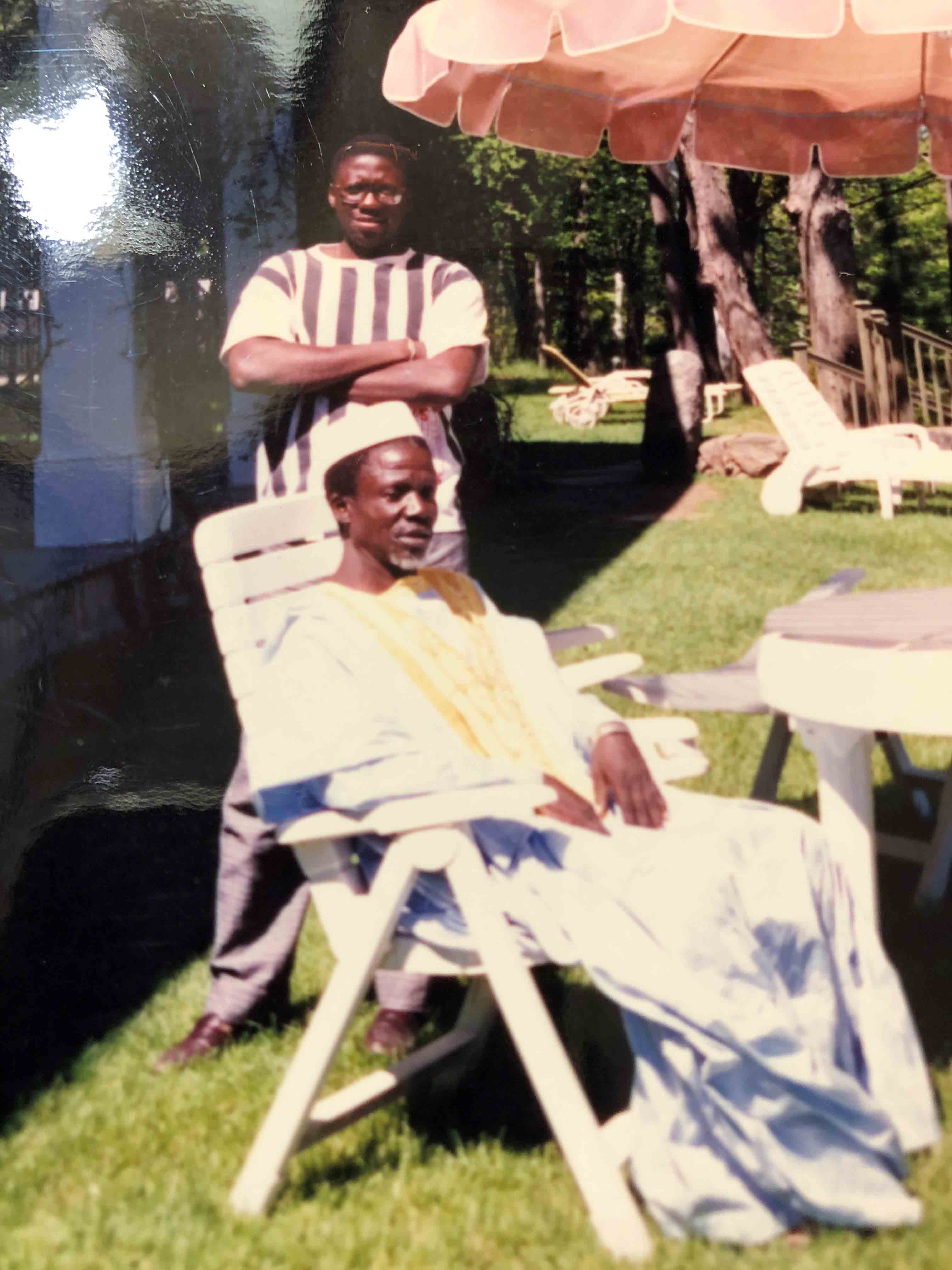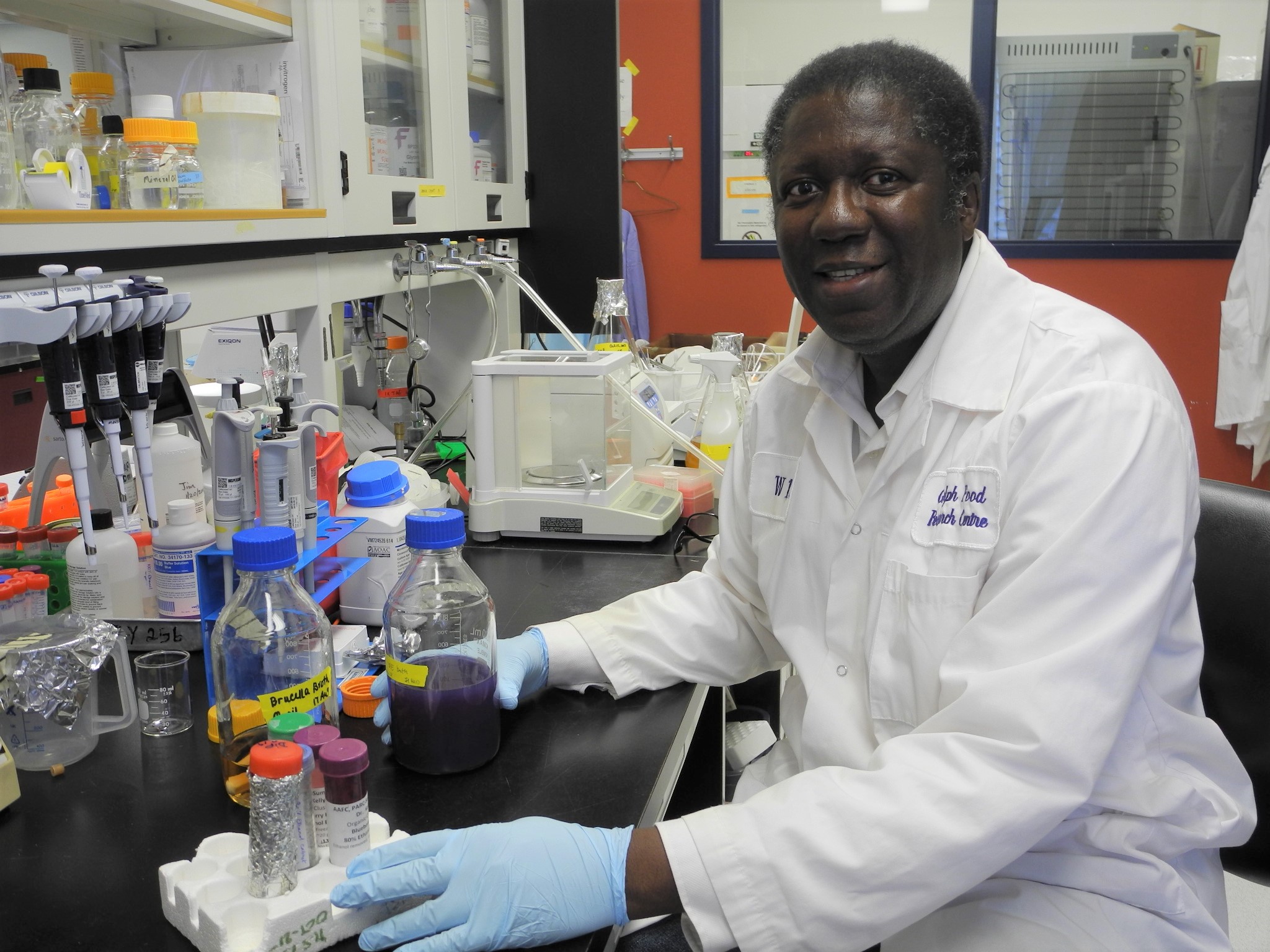This story begins like many good Canadian farming stories, with a family who loved their way of life and lived off the land. It ends with an important discovery about a Canadian food icon —the cranberry— and research that could help all Canadians. But this holiday story is unique and it begins far, far away…
Farming in Mali

In Mali, a country in western Africa, Moussa Diarra loved growing up on his family farm. His father worked hard caring for their livestock and growing crops like cereal grains and vegetables; his mother helped out and tended to their home and children.
Theirs was a big, loving extended family with aunts, uncles and cousins living together. By age 7, Moussa was up early, putting goats and sheep out to pasture. As he got older, he helped during dairy cow milking by taking care of calves. "I’ve always considered myself a farmer", says Moussa, reflecting back on this happy time.
While he learned many farming skills from his parents, he lived with another important mentor. "Sick people used to consult with my grandmother", he says. "She would cure them by using traditional plant and herbal remedies. This was the first time I realized plants have powers—they can cure! This had a profound effect on me." The effect was so profound, Moussa decided that his calling was to work in the food and health sector. "It was always my dream."
A scientific awakening
What is antimicrobial resistance?
For decades, farmers have administered low doses of antibiotics to livestock and poultry to keep them healthy, promote growth and protect against dangerous bacteria. Studies have now shown that this practice can cause antimicrobial resistance in pathogenic bacteria such as E. coli and Salmonella creating food safety and public health concerns.
Moussa pursued his dream, getting his university degree in biology with a major in bacteriology in Mali. As he learned that the majority (about 60 to 65 per cent) of medicines comes from plants, he wanted to specialize further, so he moved to Canada to complete his Master and Doctorate degrees at Laval University in Quebec.
It was at this point that he began studying antibiotics and started to understand the problems that can come from becoming resistant to them, both in humans and animals.
Now living in Canada and a specialist in his field, Moussa joined Agriculture and Agri-Food Canada and began working in research stations across the country, including the one in Agassiz, British Columbia.
His focus was on helping overcome this resistance to antibiotics that was causing such concern. He enjoyed success and earned his first patent for discovering synergy between a milk protein that binds iron and antibiotics against resistant bacteria. All lifeforms need iron to live and the iron-binding protein gave the antibiotics the boost they needed. This was a great discovery but the best was still to come.

A Christmas connection
The stars truly aligned for Moussa in 2004 when an Agassiz colleague invited him and his family to Christmas dinner.
Sitting at their dining table, he saw something he’d never seen before. "It was so red! When I asked what it was my colleague told me to try it. Oh my gosh, it was so sweet and it tasted bizarre!" recalls Moussa, scrunching up his face in memory of that first tart taste of cranberry sauce.
Cranberries are primarily a North American fruit first used by Indigenous peoples and Moussa had never had any in Mali.
Moussa kept thinking about this foreign fruit long after the holiday season, wondering if maybe there was something more to it, which led him to read more about cranberries. "I said to my wife, 'You see, no one’s getting sick. Maybe it’s the cranberries they’re eating.'" In 2005, he began his research in earnest, hoping for a helpful discovery.
Following his path
More information on Dr. Moussa Diarra’s research
More than 15 years later, Moussa’s research has shown that cranberry fruit pomace (the pulp traditionally discarded after juicing) actually has great value. By adding it to the feed of the chickens that we eat, cranberry pomace strengthens their gut by boosting the good bacteria and helping protect against the bad ones. These include Salmonella, Listeria and Staphylococcus aureus which are bacteria that can cause food related illnesses.
Moussa’s discovery includes that the fruit pomace has strong anti-inflammatory properties, strengthening the chicken’s immune system, and potentially reducing the need for antibiotic use.
Cranberry pomace improves their growth and meat quality, while preventing birds from dying early.

Because the pomace that routinely used to be thrown out, now has the potential to be used in feed, an added benefit is that Canadian cranberry producers see less waste and more profits.
"The power of this food really amazed me", says Moussa. "It has so many things that are essential to nutrition. The effect on the immune response is incredible."
It also impressed the New York Academy of the Science of Nutrition and the Sackler Institute for Nutrition Science. In 2016, they chose Moussa’s research as one of four areas that deserves more work and attention to develop alternatives to antibiotics.
A child is born
What is a Christmas story without a birth?
"Another miracle happened", says Moussa, breaking into a smile. "My daughter was born on December 24. Christmas has never been the same since! She insists on getting a birthday and a Christmas gift", he laughs.

Her name? "Nassira", he replies softly. "I had to name her after my grandmother to honour her because she taught me so much." And, ever since his daughter’s birth, Moussa’s family makes sure cranberries are always at their Christmas table.
No matter how you’re celebrating this holiday season, when you pass the cranberry sauce around the table, think of the brave, young boy who came all the way from Mali in Africa, his grandmother who taught him about the healing power of plants, and the inspirational holiday meal that led to his discovery.
Get more Agri-info
- Want more stories like this? Explore what else Agri-info has to offer.
- Interested in reporting on this story? Contact AAFC Media Relations at aafc.mediarelations-relationsmedias.aac@agr.gc.ca to arrange an interview with one of our experts.